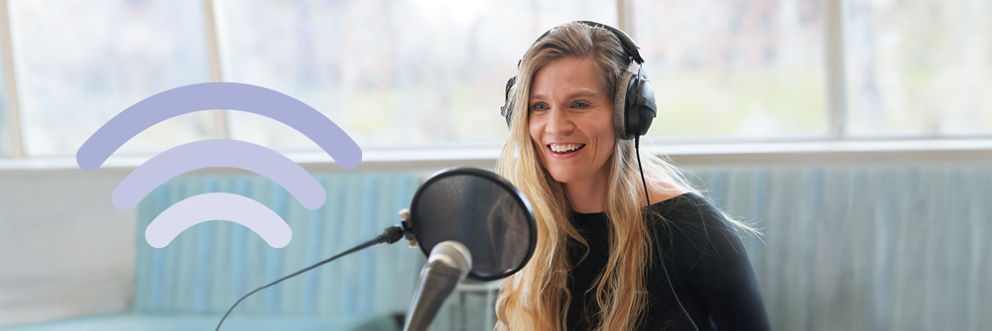Melrose Heals: A conversation about eating disorders
A podcast designed to explore, discuss and understand eating disorders
Eating disorders can thrive in secrecy and shame. But by having honest conversations about eating disorders and mental health, it’s possible to create opportunities for healing. That’s why we’ve created the Melrose Heals podcast.
During each episode, Karen L. Nelson, a licensed clinical psychologist at Melrose Center, hosts discussions about the topics important to people and families impacted by eating disorders. We hope you’ll listen and start healing.
Subscribe wherever you get your podcasts
We’re available on major platforms, including:
Apple Podcasts Google Podcasts Simplecast Spotify - And many more
There are so many messages about food in our culture that can create conflicted emotions about eating and nourishment. Oftentimes it impacts not only how we eat, but also how we feel about ourselves and our bodies. On today's episode, Dr. Karen Nelson is joined by George Elliott, a registered dietitian here at Melrose Center. Together they will discuss intuitive eating, a helpful tool that can support both eating disorder recovery and a healthy lifestyle.
Dr. Karen Nelson is joined by Patti Witt, a licensed marriage and family therapist here at Melrose Center. Karen and Patti will talk about depression and anxiety – and the impact they can have on eating disorders and eating disorder recovery.
Karen L. Nelson is a licensed clinical psychologist at Melrose Center. She has experience working with a wide range of clinical concerns, including eating disorders, mood disorders, relational problems, anxiety disorders, trauma, self-harm, compulsive behaviors and parenting concerns. A strong advocate for her clients, she believes in creating a safe space for each individual to experience nonjudgment and safety on their journey toward a path of renewed wellness, growth and healing.
More about Melrose Center
At Melrose Center, we’ve provided compassionate, expert care for all types of eating disorders for people of every age and gender for over 35 years. We’ve helped guide thousands of people toward recovery using evidence-based treatment. This means that we base our programs on the latest research and treatments proven to help. Recovery is possible, and we’re here to help you get there.
